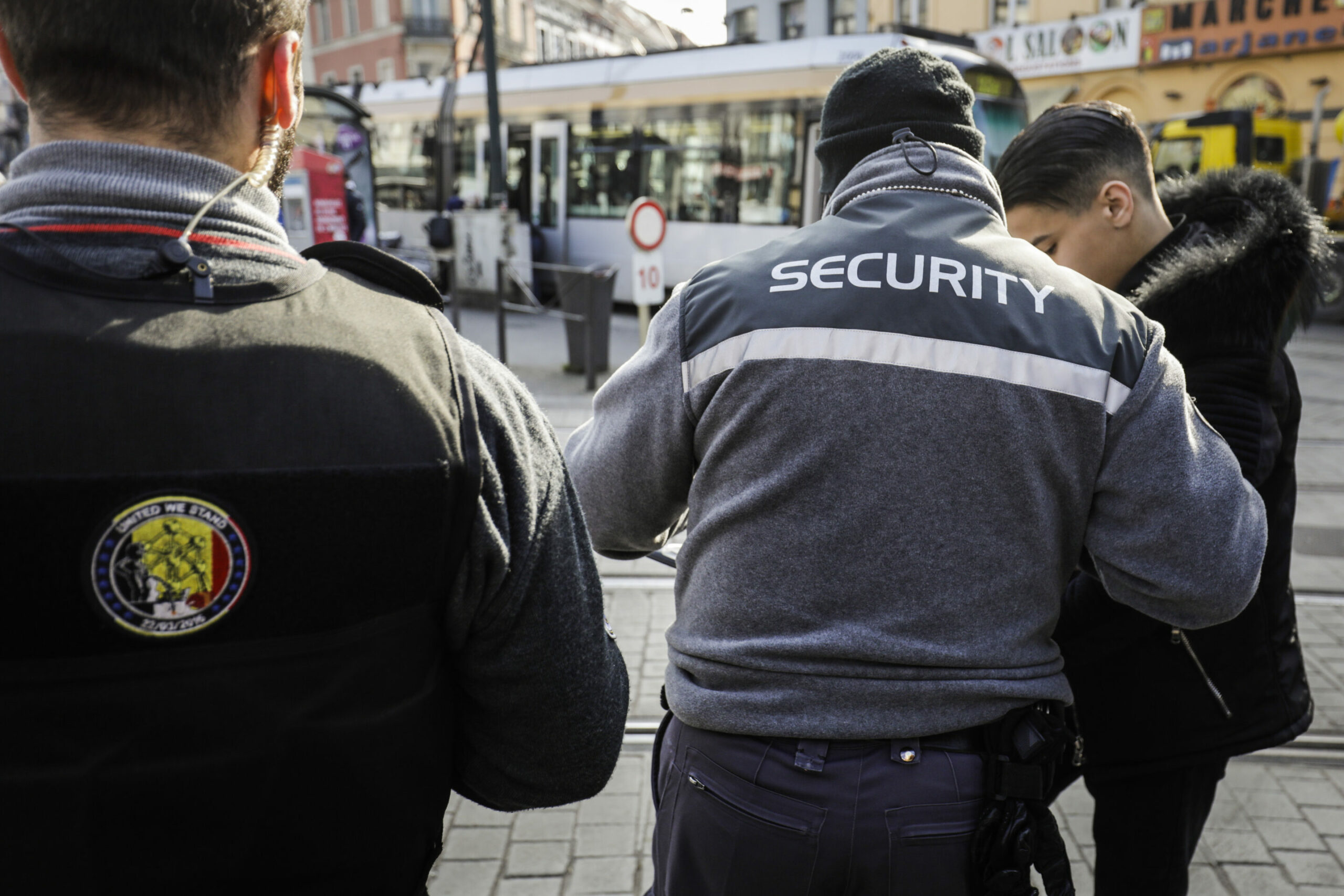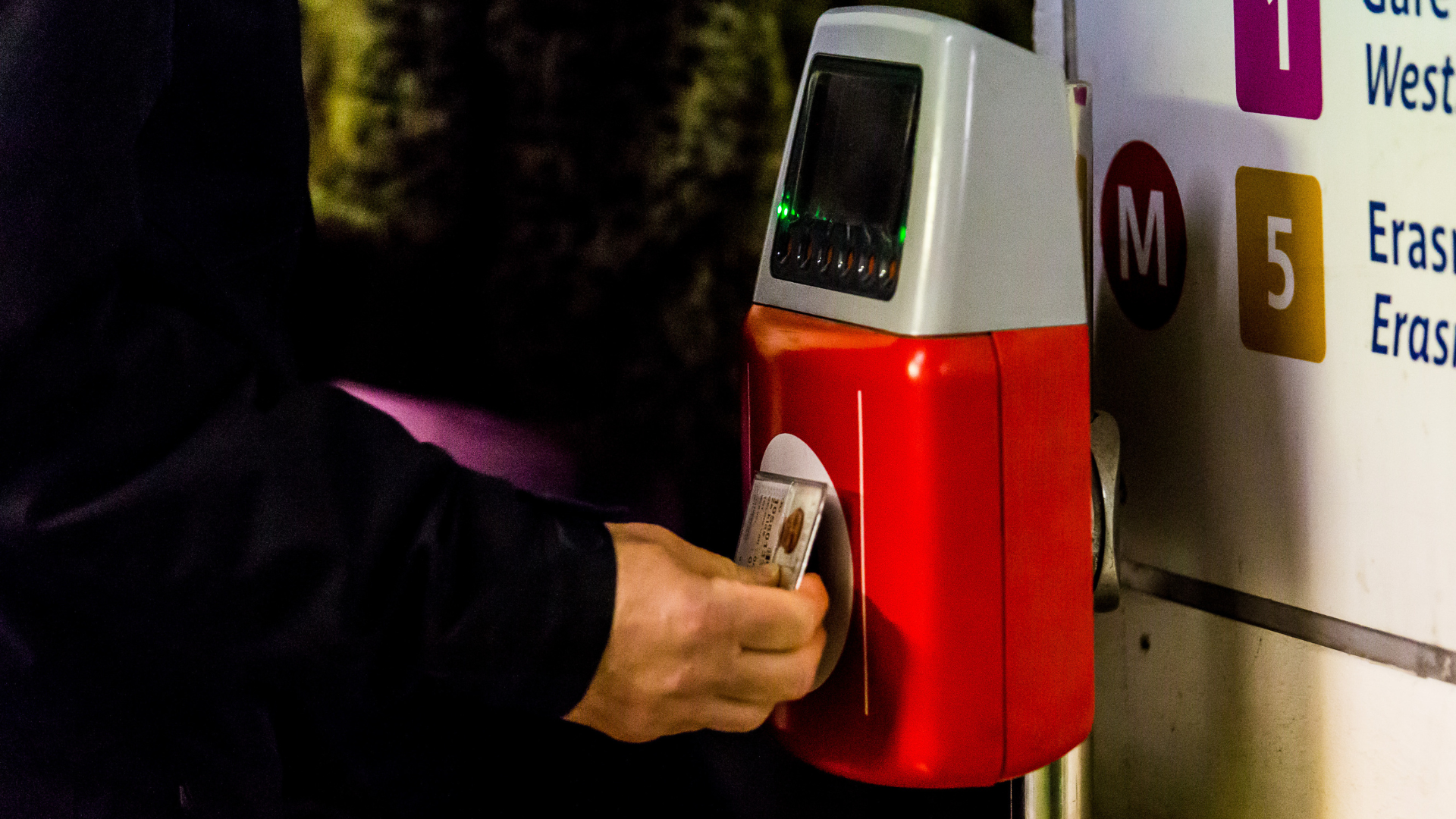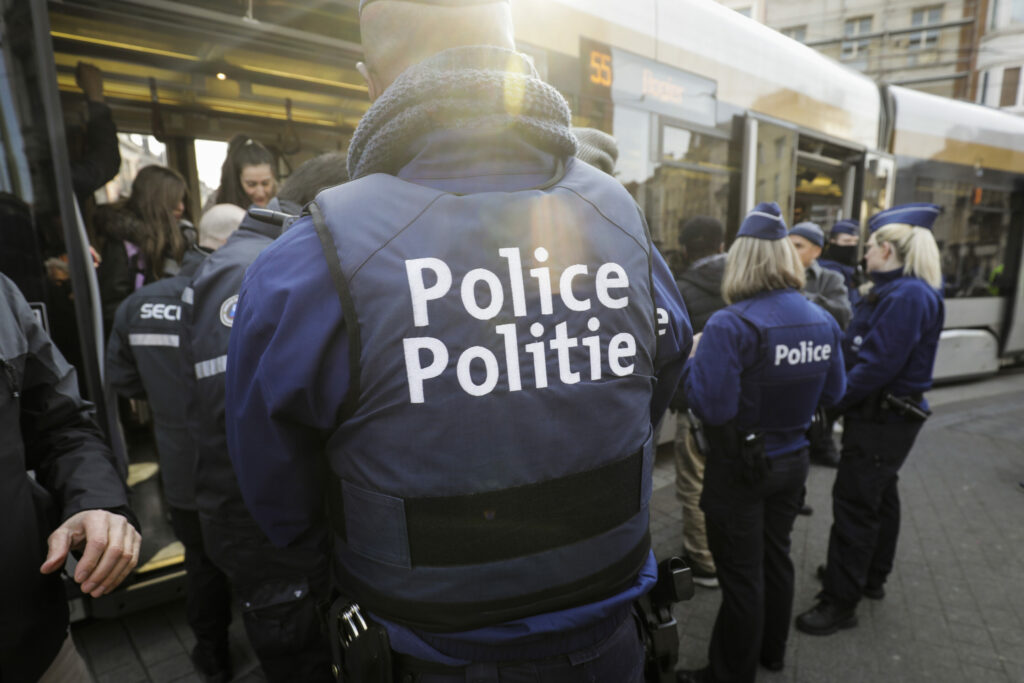Passengers pushing through the Metro barriers or getting caught without a ticket. Brussels, like many other cities, still has a fare-dodging problem – but the situation has improved in recent years.
No fewer than 402 million trips were made on Brussels public transport operator STIB's network last year, up by 7% since the previous year. However, not all trips were paid for. In recent years, it has cracked down on Metro passengers evading fares, even if it remains a key issue for the company.
"Last year, more than 110,000 fines were issued to people who used the network without having a ticket or pass," spokesperson Laurent Vermeersch told The Brussels Times. "This means that an estimate of just over 6% of travellers do not pay for using public transport in Brussels."
The percentage has decreased slightly in recent years. "In 2023, it was 6.5%, while in 2022, 7% of passengers did not pay. The years before are not representative due to the pandemic."
Passenger checks
The actual figure is likely slightly higher, as passengers on trams and buses are not checked every time they travel by public transport. Routine checks are carried out, randomly in the eyes of passengers.
These impressive large-scale actions, involving dozens of STIB staff and sometimes the police, see vehicles being stopped and inspectors asking to see everyone's ticket or pass. Fare-dodgers are removed from the vehicle and fined. In metro stations, they form a human barrier, stopping all passengers exiting the station.
Some inspections involve plain-clothed staff, both to check whether people have bought tickets, but also for other offences.

Credit: Belga/ Thierry Roge
Last year, 1.7 million inspections – either in this format or others – were carried out.
"The number of checks has increased in recent years. By increasing the chance of getting caught, we discourage fare dodging," Vermeersch said.
Anyone who cannot present a valid ticket during these checks is fined. A first offence costs €107, while passengers caught in the act a second time have to cough up €214. If a person uses a fake ticket or travels using someone else's season ticket, for example, they will be fined €480.
STIB does not have figures on the revenue loss caused by fare-dodging, but the fines issued in 2024 accounted for €6.6 million in revenue.
Paying by card and lowering prices
STIB has also taken less heavy-handed measures to curb fare evasion, including awareness campaigns to combat this phenomenon. The slogan for last November's campaign was: Don't fancy paying? Wait until you see our fines’. Passengers are reminded to have a valid ticket and validate it on tram, bus or metro.
For positive re-enforcement, STIB gave those who comply with the law and pay for their ride a chance to win a dinner aboard the Tram Experience, a restaurant on one of STIB's trams, taking foodies on a culinary journey through the Belgian capital.
Decisions in other areas also have an influence, Vermeersch said. "For example, pricing policy plays a role: the existence of very affordable season tickets, especially for young people and the elderly, lowers the threshold for choosing a season ticket."

Validating a STIB ticket. Credit: Belga / Dirk Waem
For several years now, STIB has offered all people aged 18 to 24 and all over 65s registered in Brussels an annual pass for €12, amounting to just €1 a month.
Introducing more payment options has also helped, including digital tickets (in the app) or allowing people to pay by contactless in the vehicles or at the ticket barriers. "The fact that you no longer have to buy a physical ticket or queue up at the ticket counter/vending machine removes an important barrier to travelling with a valid ticket."

